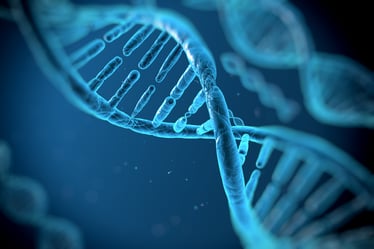eStoreRx™
Online Supplement Dispensary
eStoreRx™ is an easy direct-to-patient ordering & fulfilment program for lifelong wellness.
For over 40 years, Biotics Research Corporation has revolutionized the nutritional supplement industry by utilizing “The Best of Science and Nature”. Combining nature’s principles with scientific ingenuity, our products magnify the nutritional
eStoreRx™ is an easy direct-to-patient ordering & fulfilment program for lifelong wellness.
Biotics Research is proud to expand our commitment to education with the Wellness Unfiltered Pro Podcast. Each episode delves into key health topics and the clinical applications of our premier products. Through candid, insightful conversations, our team offers practical guidance to keep you informed and empowered as a healthcare professional.
February 19 2026
The journal Sleep Medicine Reviews recently published the results of a systematic review and meta-analysis examining melatonin supplementation among c...
 According to a new study, scoliosis, a curvature of the spine, may be linked to the body's inability to utilize manganese. In this exome-wide association study of 457 severe adolescent idiopathic scoliosis (AIS) cases and 987 controls, they observed “a missense SNP in SLC39A8 (p.Ala391Thr, rs13107325) associated with severe AIS (P = 1.60 × 10−7, OR = 2.01, CI = 1.54–2.62).”
According to a new study, scoliosis, a curvature of the spine, may be linked to the body's inability to utilize manganese. In this exome-wide association study of 457 severe adolescent idiopathic scoliosis (AIS) cases and 987 controls, they observed “a missense SNP in SLC39A8 (p.Ala391Thr, rs13107325) associated with severe AIS (P = 1.60 × 10−7, OR = 2.01, CI = 1.54–2.62).”
Previously, this particular SNP has been associated with BMI, blood pressure, cholesterol, and blood manganese level. In this study, they noted “the minor allele of rs13107325 is associated with greater spinal curvature, decreased height, increased BMI and lower plasma manganese in their AIS cohort.”
AIS is not well understood, and recent genome-wide association studies have helped to identify genetic markers. “Because a previous genome-wide association had identified the minor allele of rs13107325 as being associated with reduced blood Mn2+ levels,[1] we obtained plasma Mn2+ and Fe2 + levels from a subset of our AIS cohort. Heterozygous carriers of rs13107325 had significantly lower plasma Mn2+ levels compared to non-carriers (P = 0.01, t-test), but there was no difference in plasma Fe2+ levels (P = 0.84, t-test) as expected.”
“A highly significant association between a coding variant in the manganese transporter SLC39A8 and risk of adolescent idiopathic scoliosis [was identified], [and the] association was replicated in a second independent cohort of AIS patients and controls.” SNP rs13107235 is arguably one of the most highly pleiotropic variants in the human genome.[2]
Although manganese deficiency is rare, it can cause growth impairment and skeletal abnormalities[3] because it acts as a preferred cofactor for multiple enzymes involved in the development of cartilage and bone.[4] Future studies are needed to determine whether manganese supplementation may be a therapeutic option in individuals at risk for scoliosis, but the results are promising.
[1] Ng, E. et al. Genome-wide association study of toxic metals and trace elements reveals novel associations. Hum. Mol. Genet. 2015 24:4739–4745.
[2] Pickrell, J. K. et al. Detection and interpretation of shared genetic influences on 42 human traits. Nat. Genet. 2016 48:709–717.
[3] Keen, C. L., Zidenberg-Cherr, S. Present Knowledge in Nutrition 7th edn. (ILSI Press, Washington, DC, 1996).
[4] Breton C, Snajdrova L, Jeanneau C, Koca J, Imberty A. Structures and mechanisms of glycosyltransferases. Glycobiology. 2006 16:29R–37R.
Submit this form and you'll receive our latest news and updates.
*These statements have not been evaluated by the Food and Drug Administration. This product has not intended to diagnose, treat, cure, or prevent any disease.
© 2025 Biotics Research Corporation - All Rights Reserved
Submit your comment